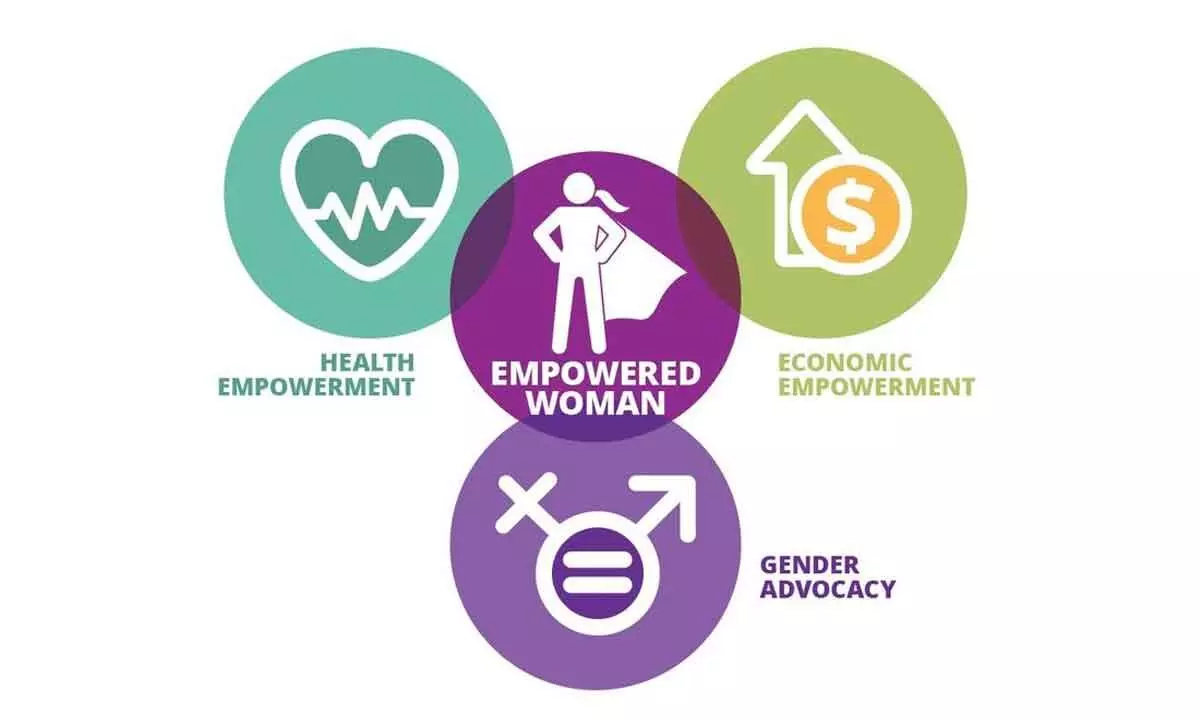Assuring women their share of quality of life crucial for social well-being
When decision making is denied to women, it affects their health, QoL and family
image for illustrative purpose

One of the main factors affecting QoL is lifestyle habits and behaviours. Health-promoting lifestyle (HPL) is a contextual factor in disease prevention and health promotion
The World Health Organization (WHO) defines ‘Quality of Life’ as an individual's perception of their position in life in the context of the culture and value systems in which they live and in relation to their goals, expectations, standards and concerns.
Quality of life (QoL) has become a key goal of contemporary health care. It is often confused with standardofliving. However, standard-of-living refers to the possession of wealth or material goods. Although a certain number of square feet of living space in the United States, or oxen owned in Ethiopia, make a tangible difference in people's lives, it does not necessarily bring greater happiness or well-being; we can observe this most distinctively in lottery winners.
Women’s empowerment is imperative and crucial for society and the nation as a whole. In almost every community and sphere of life, women assume unequal positions and status; thus, it is necessary to empower them by providing equal opportunities.
In 2001, India passed the National Policy for Women’s Empowerment, which facilitated advancement, development, and empowerment of women. We can identify women who have gained authority over the patriarchal society and have contributed to science, literature, politics, and many other areas even though they have always been the minority in such fields.
They always had to face discrimination always. Violation of the human rights of women is a familiar story. Decision making for the women themselves or the family is considered as the so called right of the men. When decision making is denied to women, it affects their health, quality of life (QoL), and family. There is a close interaction between women’s decision making and their overall QoL.
The World Health Organization has focused on good health as a prerequisite to achieving sustainable development.
A netizien said that initially, she felt that life in India is luxurious with quick food deliveries, grocery delivery, and affordable household help. However, after visiting the US, she realised that clean air, ongoing electricity, the availability of water, good roads, and greenery are major factors when it comes to determining quality of life.
An individual said that villages can offer a peaceful and healthy environment. "Villages of India also offer you such a peaceful and healthy environment... Farmers of India are no less than living in US or Melbourne the only drawback- u can't get food delivered online & obviously not a high package Microsoft job," the social media user said.
Another user commented that both places have their plus and minus points. "You usually cannot have everything in one place," the user said.
"Really depends from person to person and how you define the quality of life. Having lived in Bangalore and also getting a taste of life abroad, and talking to people who live abroad, things are not as rosy as it seems on the paper," a social media user said.
One common definition used is that of the World Health Organisation (WHO), which has defined QoL as: “an individual's perception of their position in life in the context of the culture and value systems in which they live and in relation to their goals, expectations, standards and concerns. It is a broad ranging concept affected in a complex way by the person's physical health, psychological state, personal beliefs, social relationships and their relationship to salient features of their environment.”
Middle-aged women’s quality of life is significantly correlated with their health-promoting lifestyle. Health authorities and policy makers can use these findings to develop and implement programs to promote middle-aged women’s engagement in health-promoting behaviors and thereby, improve their quality of life.
One of the main factors affecting QoL is lifestyle habits and behaviours. Health-promoting lifestyle (HPL) is a significant predictor of health. HPL is a contextual factor in disease prevention and health promotion. Thus, HPL should be considered as a main strategy for maintaining and improving health.
Women constitute one half of the total population. Thus, their health is the keystone of families’ and societies’ health. In other words, women’s problems affect the health of their families, societies, and future generations. Consequently, women’s QoL has received considerable attention. Health-promoting behaviours such as physical activity, stopping alcohol consumption, and regular blood pressure measurement can significantly improve Quality of Life. Moreover, lifestyle components can significantly predict the prevalence of chronic conditions as well as mortality rate. On the contrary, smoking, physical inactivity, weight gain, and poor nutrition can increase the risk of developing chronic conditions.
Lifestyle modification necessitates changes in behaviours which form a large part of daily habits. However, those lifestyle modifications which do not improve QOL may reduce individuals’ motivation for adhering to them.

